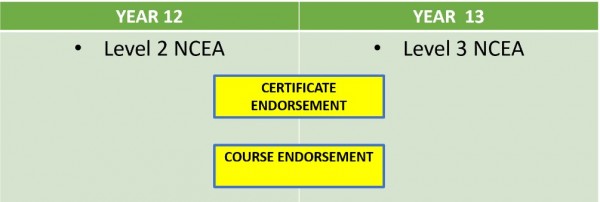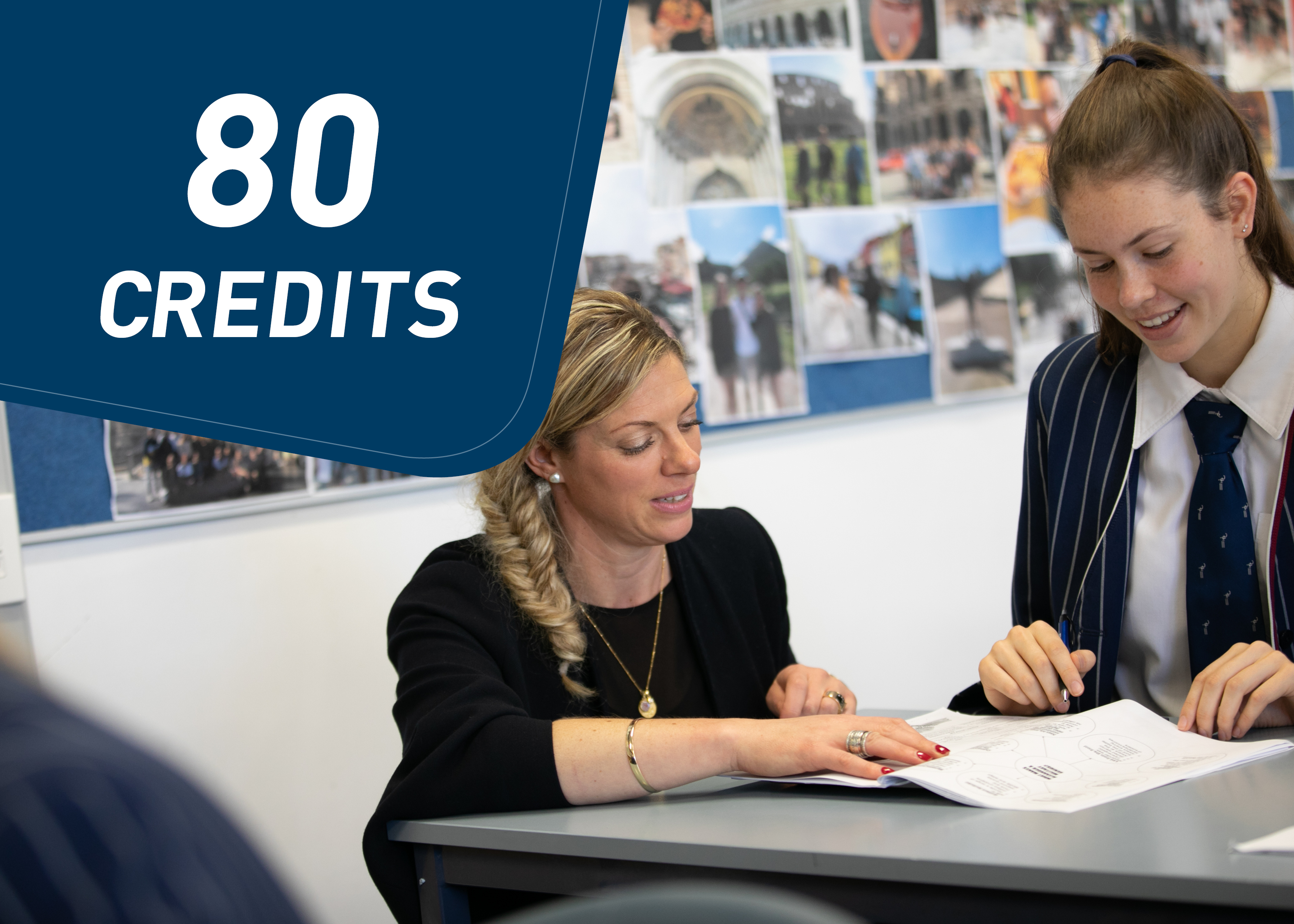
You are logged in as
Logout
You are logged in as
Logout
Dear Parents and Caregivers
Not surprisingly, NCEA ‘business’ is starting to ‘heat up’! In this newsletter, I outline a number of things to look for or be aware of as your child makes their way this year through NCEA Level 2 or 3. This week, we are in Week 7 of Term 1 (hard to believe isn’t it?!), and more NCEA assessment is happening – tests are being sat, assignments completed and handed in – and students are absent on various school-related activities such as field trips, sports events and summer tournament week that is in Week 9. As well, sickness is beginning to bite – so how do our NCEA Rules and Procedures help us all to manage our way through this?
So, as to keep this newsletter a little bit shorter, in my next one, I’ll explain the workings of Course Endorsement and University Entrance and will talk about why the Level 2 results are surprisingly very important for the future.
At all times, please feel free to contact me via email with any questions that you may have about NCEA at DBV@stac.school.nz.
Kind regards
David Bevin
Head of Teaching and Learning

NZQA are still in the process of managing the reconsiderations and review process and I am aware of a number of students who have had ‘upward’ grade changes to their original grades in an examination paper – so improvement is still possible, and results do change. Our 2022 NCEA results are once again excellent and clearly our students did outstandingly well in last year’s examinations, as follows:
New Zealand Scholarship awards = 62 (57 Scholarship, 5 Outstanding) – two separate NZQA Outstanding Scholar awards were made to St Andrew’s College students.
| NCEA Results | NCEA Excellence endorsement | |
|
Level 1 = 99.1% Level 2 = 100% Level 3 = 97.6% |
Level 1 = 96 Level 2 = 99 Level 3 = 77 |
Total = 272 |
In addition:
We are still in the process of results changes from last year’s NCEA and I am aware of a number of situations where students have improved their final grade in a particular external standard based on a reconsideration or a review. While we have already held our Academic Assembly this year in which we acknowledged the performance of our students in the gain of our various academic awards, we will still acknowledge those students who, as a result of the above changes, subsequently gain an academic award.
Monetary prizes are made to both Year 12 and Year 13 students for 2022 NCEA Level 3 and Scholarship as follows:
Level 3 students (and four Year 12 students) gained some, or all, of the following awards:
In addition, the College recognised New Zealand Scholarship success by awarding financial prizes for the following:
Rather than trying to retain their knowledge of lots of facts about the workings of NCEA, it is particularly important for parents to understand some of the issues that students in their second or third year of NCEA will need to manage.
While students need to be increasingly independent in managing their NCEA commitments, parents are encouraged to continue to have an input into what their student is doing academically, be it in Year 12 or in Year 13, by asking them about their courses and what is involved, asking about their academic schedules i.e., assessment dates and by checking in on their academic achievement i.e., assessment results.
The year goes by at a rapid pace and, as an example, by the time you read this newsletter, students will have completed week 7 of this 10-week first term! This leaves them with just 24 weeks of lessons and assessment, so there is a sense that 2023 will ‘flash by’. It is important to say that students should be well under way with their work this year, be organised, be clear about what assessments they have in each course and by when each should be completed.


To access all of our course outlines that are available on the College website, simply log into StACNet, then click on the ‘Teaching and Learning’ page, you will then be able to access the ‘Course Outlines 2023’ page. All Course Outlines for this year are presented in very similar formats so that you can quite easily find your way around them and will be able to read through the subject’s assessment information. This will help you and your child to gain a good view of the subject’s assessment programme for the year and so manage the planning.
The NCEA information page is located right beside the Course Outlines 2023 one under 'Teaching and Learning' on StACNet. Here you will see the entry point to all our NCEA information. Throughout this year, these various folders will be updated as needed and you will regularly be referred to one or more of them in my newsletters or in emails that will be sent to you.
Internal assessment is obviously the big concern for students this year. Most students will be assessed in, on average, 15–20 internals across the year. A few students will gain their NCEA through internal assessment before they even sit the external examinations in November and, as such, internal assessment is ‘high stakes’.
We have clear rules and procedures for students to follow covering many matters including student absence from an internal, late submission and breaches of authenticity and these are all detailed in the student copy of the ‘Rules and Procedures’. All students are receiving their own copy of the ‘R & P’ in this week’s tutor time; they must be sure to read them as the rules must be, and are, applied in all assessments.
In my next newsletter, I’ll more fully explore the rules that we apply to the management of internal assessments, however, issues around extensions and absence from assessments occur every year and have begun to occur already. Field trips are happening, sports events are taking place and summer tournament week takes place in Week 9 - so it is important for you to know that we have clear processes and rules for managing those issues so that assessment is fair to all students. Students simply cannot just hand in an assessment late or not turn up to a test without having a valid, and approved, reason. They must follow our procedures in this area.
Two weeks ago, all NCEA-level students and parents received an email from me about how we are managing this issue. In it, I outlined this information (this is also contained in the above student document for NCEA).
It is very important that you meet deadlines for NCEA internal assessments. If you are not able to meet a deadline, you must have a very good reason and are required to go through a formal process of applying to your teacher – and you are required to do this in a timely manner ie before the deadline. This is the process that you MUST follow for any internal assessment; if you don’t, you will not be entitled to an extension. Staff know about this process and know that they must enforce it on each occasion.
FIRST STEP – You must fill out the form by clicking here.
SECOND STEP – All applications are received by Mr Bevin, who will review them and then refer them to the teacher involved.
THIRD STEP – The teacher concerned, and the Head of Department will then discuss the application, using the following criteria and process:
| Request Type | Process that must be followed by the Teacher. |
| If you have COVID-19 and are therefore isolating | Extension request is automatically approved. Negotiation of a revised final date will be done by the teacher and you when you are well enough to resume schoolwork. |
| If you make a request on medical (non-COVID) grounds | The extension request will be approved subject to the provision of a medical certificate (this must be provided to the teacher and in a very timely manner). The final date is negotiated by the teacher and you. |
| All other requests | Subject to there being valid grounds for a consideration (e.g., a school field trip/sports event), negotiation over the submission date may be possible. |
FOURTH STEP – The teacher or Head of Department will confirm their agreement with you in writing.
Note about Medical Certificates
You will see clear reference to medical certificates in Step 3. If a student is sick (non-COVID), they must get a medical certificate and provide it to their teacher as part of their application for an extension. If they do not, they will not have an extension. This is non-negotiable on the school’s part. Given the nature of COVID-related illness and the required isolation period, in that circumstance, a medical certificate is not required.
This very important calendar provides overview information about what assessments are on when, according to each Year level. Please note that assessment programmes are of necessity a little ‘fluid’ and therefore dates sometimes change; teachers are expected to keep students and parents informed of such changes so please understand that what is on the Calendar, while it’s accurate, is not ‘set in stone’. The Calendar provides an important way of helping your student to programme their commitments term-by-term and is updated for the start of each subsequent term, ready for the return to school after each holiday.
On the NZQA website you can access the timetable for this year’s end-of-year national examinations. While it’s very early days to look at this, if students and their parents are looking at holidays at the end of the year, it is essential to look at the student’s examinations timetable. Note that these are national assessments so are fixed and cannot be changed.
The timetable also shows completion dates for assessments in subjects that do not have exams but do have external assessments at some stage late in the year such as in Digital Technology, DVC, Materials Technology and Visual Arts. Deadlines are provided and are just that – deadlines - and students who are entered for these externals must meet those key points to be assessed – no date change is possible for any student as it is just like an external examination.
It’s also important to check the timetable to see if a student has an examination clash, meaning they might have more than one examination on at the one time. While this doesn’t happen a lot, it does happen, and special arrangements are made by NZQA in this situation to enable the student to sit both of their clashing examinations on the same day.
The College Prelim examinations will run in Weeks 8 and 9 of Term 3. The Prelims are one of the ‘high points’ of our academic year and provide a proper, ‘dry run’ for the later NCEA exams. Students are assessed in most, or all, of their external standards in these exams and important feedback is given to them on the progress in their subject knowledge and understanding to that point.
Many parents will be familiar with the derived grade that is available for NCEA in cases of absence from exams or impairment; in 2022, as is the case in every year, derived grades were required by a significant number of our students and those grades came almost exclusively from students’ Prelim examination results – so, they are important!
Just so you know… last year, these are examples of applications for a derived grade for NCEA exams that were made on the basis of:
|
|
 It’s very relevant at this point to remind you of the ‘one-stop shop’ nature of our Community Portal, which now sits within StACNet. Parents are able to access a lot of information provided by the College with regard to attendance, assessment and reporting.
It’s very relevant at this point to remind you of the ‘one-stop shop’ nature of our Community Portal, which now sits within StACNet. Parents are able to access a lot of information provided by the College with regard to attendance, assessment and reporting.
When you click on the Results tab on the right of the screen, you will be able to access both the Fortnightly Notes and the ‘powerful’ and dynamic NCEA Current Results Summary. This particular document enables you to see the grades that your student gains over the course of the year in their various internal assessments and practice/ indicative assessments and their progress towards NCEA awards, such as certificate and course/subject endorsement. You no longer have to ask your student to tell you what their assessment results were because you can see them through your own login!
When you click on ‘NCEA Current Results Summary for (your student’s name)’, you will be able to see the subject, standards, credit values and, when results are recorded by teachers, grades gained for those standards.
At this early stage of the year, it’s a good idea to have a look through this information so that you can see just what assessments they are likely to be doing. Early on, very few results will show but as the year progresses and internals are completed, it will become very interesting reading that you will not need to ask your teenager to show you – there’ll be no ‘hiding’ from results! The summary table ‘NCEA Results Summary’ provides an excellent summary of ‘Achievement/Merit/Excellence credits’ that are being gained and so shows their progress towards a Merit or an Excellence endorsement.
You will of course be very familiar with these ‘snapshot’ views of your student’s attitude and effort in class as we give you feedback on these most fortnights through the year. In terms of a student’s academic progress and achievement the Feedback is very important because there is a very clear connection between a student’s attitude to learning and their effort in class and their overall academic achievement. So far, teachers have provided two Feedbacks; we report in this way, but we don’t notify you that they are there. Remember that this term for example, Feedback is provided in Weeks 4, 6, 8, 10.
Because Senior College parents have at least one, if not two, years’ experience with NCEA it is not my intention to reiterate all of the ‘workings’ of NCEA. This very simplified diagram provides a good summary of the key targets in terms of NCEA awards such as endorsement and certificate gains that are common to both NCEA levels.

At each of these two NCEA levels, the minimum target is 80 credits, 20 of which can come from another NCEA level. This does not mean, however, that Level 1 credits contribute to Level 3 – they don’t! It does mean that a student must get at least 60 credits from their NCEA level of study.


The only other requirements for the gain of Level 2 are to have Level 1 Literacy and Numeracy (10 credits in each from any valid Standards, internal or external). Note that, with numeracy, if a student has gained Level 1 NCEA, they have satisfied the numeracy requirement for all of NCEA.
As with Level 2, for the gain of Level 3, a student must also have Level 1 literacy and numeracy (10 credits in each from any valid Standards, internal or external).
At the start of both Level 2 and 3, students begin with 20 credits that have been carried over from their previous NCEA level. This happens automatically and is simply 20 credits, no particular credits nor grades. Note that students did not need to have gained 100 credits at the previous level to be able to carry over those 20 credits.
As well….
If a student in Year 12 studied Level 2 subjects while in Year 11, their level 2 credits gained are added to this year’s total. Equally, if a student in Year 13 studied Level 3 subjects while in Year 12, their level 3 credits gained are added to this year’s total.


For a Year 12 student, any Level 2 Merit or Excellence grades gained last year are carried over to this year’s total for the purposes of certificate endorsement.
For a Year 13 student, any Level 3 Merit or Excellence grades gained last year are carried over to this year’s total for the purposes of certificate endorsement.